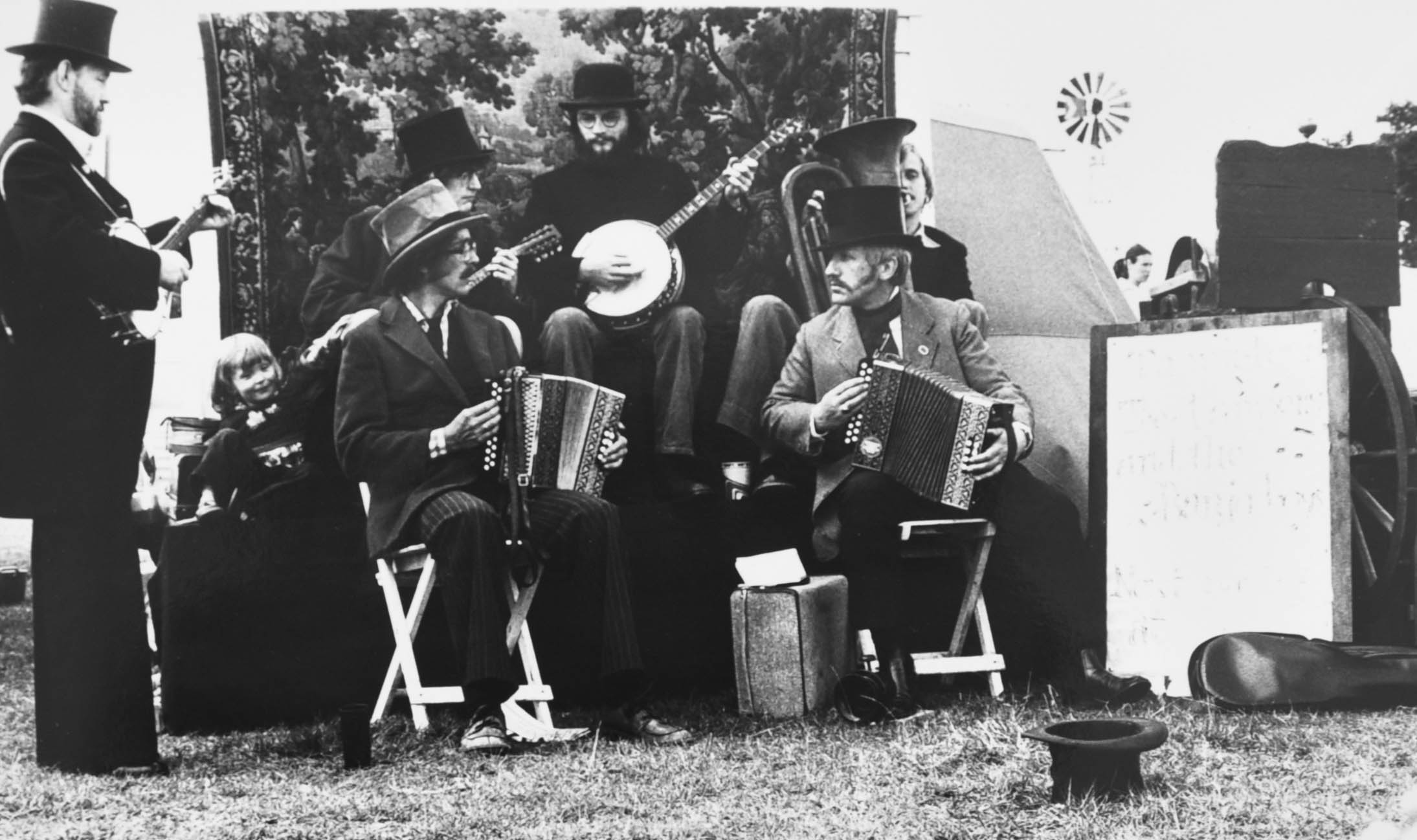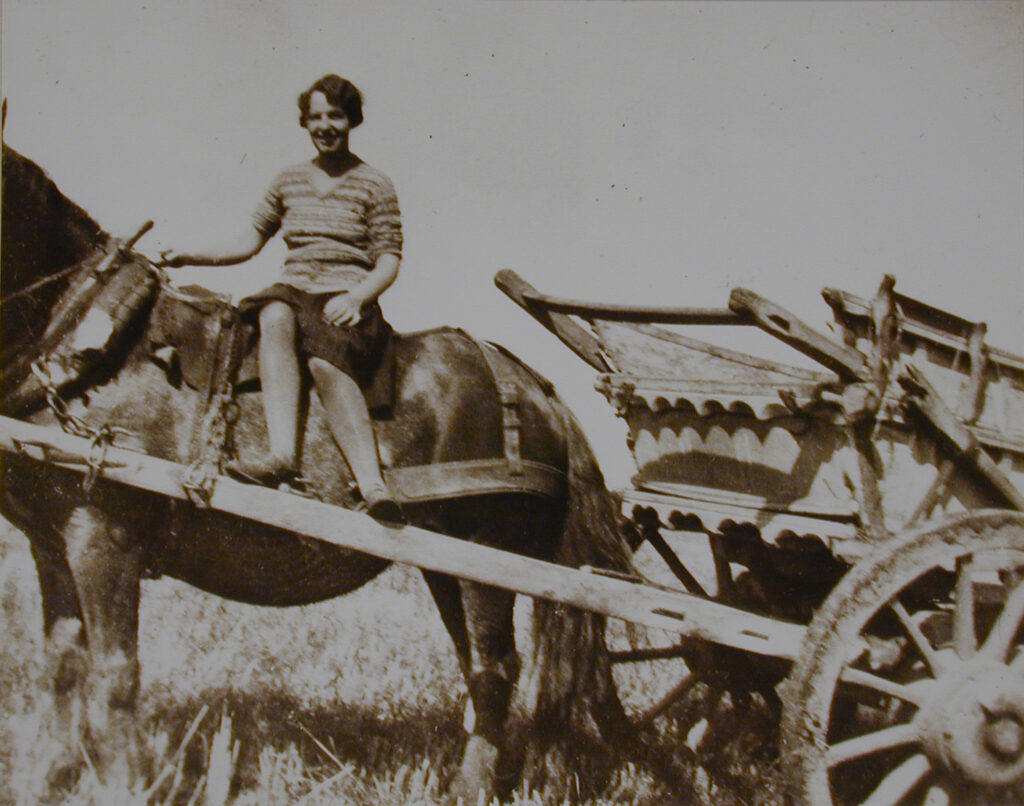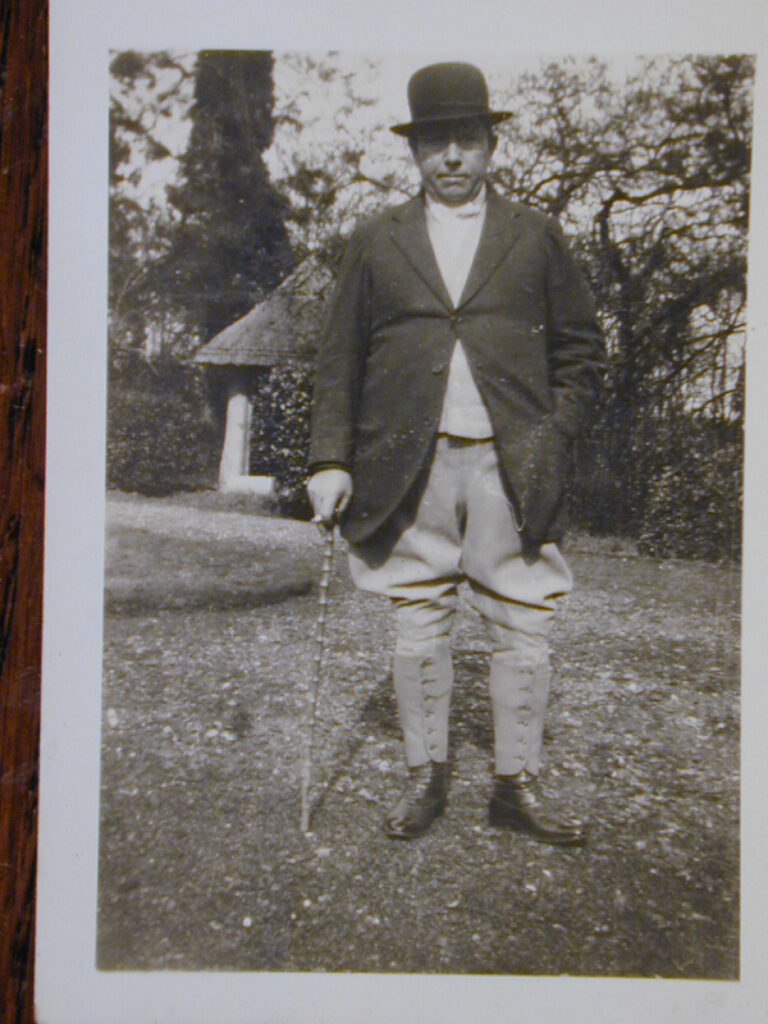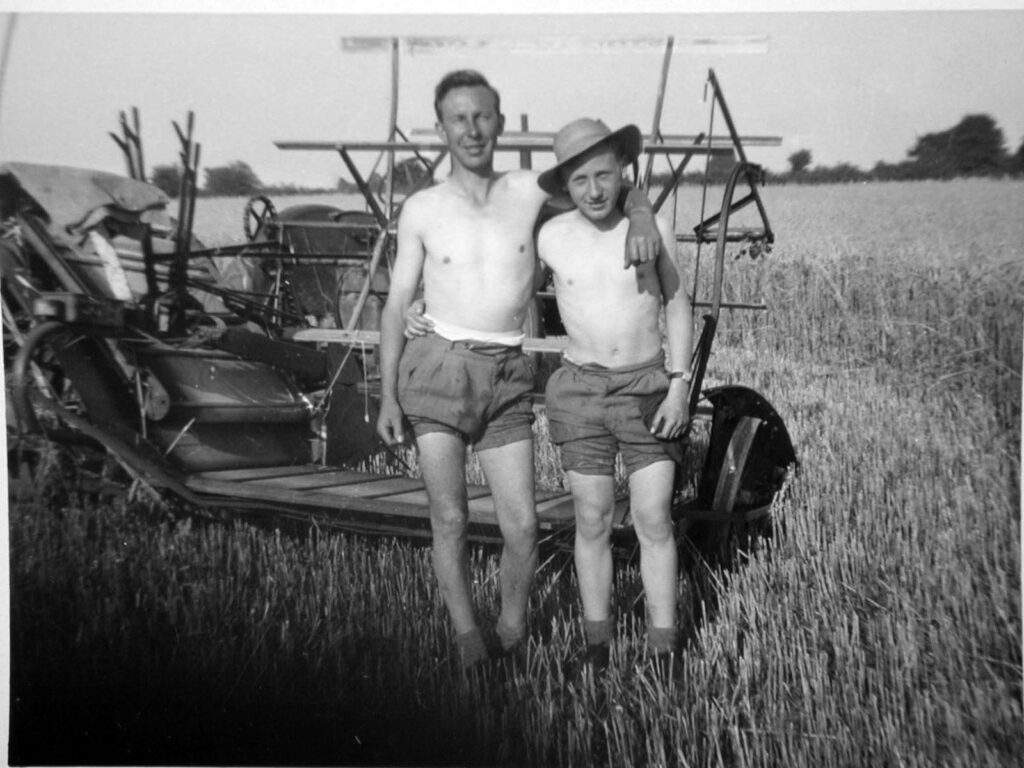In early June 2020, as Lockdown started to ease and meeting in gardens was permitted, musician Megan Wisdom and EATMT Administrator Alex Bartholomew met in the delightful garden of Neil Lanham. Author, collector of oral traditions, musician, artist, retired auctioneer and football analyst and owner of Oral Traditions * – a website devoted to the spoken word of the vernacular indigenous people and all that it passes in terms of Traditional Song, Story, Wisdom, History and Cultural Identity – Folk Life, Folk Song & Folk Story.
Neil is well known for his beliefs based on experiences that come from the oral tradition and as we sat in his garden, we were to learn many of what Neil calls principles of understanding about the tradition in Music and the whole of the vernacular indigenous life that supports it. This he did in relating what he called watersheds of understanding on his voyage of discovery of himself and of others around him.

My Life in the Oral tradition by Neil Lanham
Never have it said, boy, that yer mother bred a jibber is what Uncle Tickles would say if I held back in the family sing song that took place round my Nannie’s (note: grandmother in almost any other county but not here) piano on a Sunday night at Red House Farm, Boxford. In case you don’t know, a jibber is a faint-hearted horse that won’t go. It is a metaphor and I was to find out much later that the whole of the traditional peoples’ language, idiom and life is guided by metaphor.
Father died when I was 5 and I went backwards in my schooling. I found solace however with the old boys down the cart-lodge as my mother before me had done. There was an enormous class distinction then and they usually clammed up, but I loved their countenance, showing them respect and they would open up for me. I learned to become a good listener, which is essential as one can only listen and watch the tradition.
The first that I remember of singing was when, as a family, we had gone to Hadleigh Cattle market in about 1942 and in the White Horse I was sitting (no one in the south said sat then!) on my grandfather’s knee and said Give us Ripatip grandad. He duly obliged jogging his britchin and buskin clad leg up and down singing Rip a tip a turn him out and hunting let him go. It is a version of what is known in the folk world as Poor Old Horse. Of pagan origin but to all the community it was just another song to be used for entertainment. He sung 3 verses and then launched into Success to gallant Bendor – a song about the racehorse that I have never heard of outside the family. The undiluted culture lay all around us as it did everyone else – if they had this thing called curiosity.
Another incident a couple of years later concerning paganism was in witnessing a load of gore spread upon a blackthorn bush near to the stable where we had had a new Suffolk foal born. This I much later discovered was the horseman’s traditional way of securing the safety of the new born foal by spreading the afterbirth on a blackthorn bush. It gave me an insatiable desire to know what else there was being carried by these less lettered, disregarded people and I was to find more than in any book whose authors apart from George Ewart Evans, I found knew nothing of the ways of this underground society from their armchair professorship.
In 1959, as an auctioneer I moved to work in Campsea Ashe cattle market and on Saturday and Sunday nights with my mates would visit all the local hostelries in search of the right company where we could sing our bawdy songs. Every one of these pubs then had music of some sort but you had to fit in and not stand out as posh or they would button up. At Blaxhall Ship I always hid my car up the road and not in the car park. The beauty of the place then and when I was recording, was that there was no one at all in from outside the community although I was told about the visit and uncompleted promises of Lomax and Kennedy.
A big watershed of realisation came for me when my girlfriend took me to the first Cambridge Folk Festival in the early 60s. Compared to later it was like a vicarage tea party and a young folk group, The Watersons, sung one of the old ditties that mother used to sing. Mother was not a singer in the modern sense of the word but like most people then, would have a song or two on their mind all the time and would sing, hum or whistle all day. I hurried home quite stunned. Mother cannot possibly know Folk songs – she has never heard them on records or read book – but I found when asked she came out with 50 or more songs mostly in fragment form.
The penny then dropped that nothing comes out of books, for everything has to come from the spoken word of people first. My so called educators, may god rest them, had taught me that if it did not come out of a book it was not proper when the truth was the exact opposite. As Walter Ong in his book Orality and Literacy reminds us, the spoken word came first and should be considered to come first now. Books can at best only ever assist but minds have been distorted away and one has to experience the truth to realise it. My life changed, for I now realised that our culture lay all around us. It was not called Folk – that was only what the people of the city in their romantic curiosity of the rural idyll called it and it has come to represent an urban literate revival of what is essentially an oral rural culture. It was the old culture that started with primitive man and there was still so much to discover if only I could readjust my mind away from the dominance of erroneous attitudes brought by schoolroom learning. I found, as Winston Churchill was to quote my education was only interrupted by my schooling. I was repulsed to find that people who labelled themselves collectors were only interested in extracting the melodies (from us peasants!) for a completely different use in their urban society. I have been asked for songs from the peasants but have given nothing feeling, like my folks would have been, insulted.
When I received an award at the 75th anniversary celebrations at EFDSS, I dedicated my award to the vernacular indigenous people of the counties of England for without them, there would be no Cecil Sharp House for there would be nothing to put in it. George Ewart Evans and Alan Lomax have both said that to understand the music of any culture you need to encompass the whole life. Evans even said that there is violence being done otherwise. It is not difficult to see the violence that has been done to our inherited traditions.
Following the Cambridge Folk Festival and these understandings, my adventure in noting and recording the living tradition all around me was about to begin for I could now understand why Gustav Mahler said Tradition is tending the flame and not worshiping the ashes.
So what I have done is to recycle the culture back into the communities that it came out of (at some expense I would add).
I clearly remember recording Bob Scarce in the Blaxhall Ship. When he was slow to start, Wickets the chairman reminded him with Go on Bob. Get forrard. Get forrard Misses Gorrod, the cart hang!
What a great metaphor I thought and made it the title of the double CD for who cannot see the mental imagery of a fat lady sitting in the back of a cart that is tilting backwards because her weight is the wrong side of the wheel arch?
Metaphor is the prime inherited object of all natural people for it is the measurement to live by and as English ruralist journalist Adrian Bell said of the less lettered there are a thousand chances a day for simile and jest. What a beautiful language we had before this era of artificial gadgetry.
Another big watershed of realisation was to come for I realised that the delay instigated by Bob Scarce, the way his beady eyes peered out from beneath his cap and his fingers slightly twitched on the stick handle that he held in his two hands before him, was all part of him selling his story in song. Similarly he would pause where to those of music literacy there should be no pause, nip the note or sing unbelievably flat. On a murder ballad, he changed from a major key to a minor key for the gory part and then back again. He did not know what he was doing if you look at it with only literate impregnated eyes but he did, in his inherited feeling, very much indeed know what he was doing. It all came from within and I again saw an unbelievable beauty in it. I left with new understandings. Firstly that in the tradition the story comes first and music from voice is merely an instrument to be used and varied accordingly to accentuate the story. It is only far gone literates (to quote Walter Ong again) who know no better and ourselves included, because the music in the world of Pop now seems more important than story and would be in the revival if we let our scholastically educated mind take command.
Bob was my favourite singing English man simply for his remarkable retention of these old values but then he was also Peter Kennedy’s and Peter’s more famous Mother and Father’s too. Why story is so important to mankind is because every story has a reason of its own and the passing of such understanding is a measurement to live by. I seem to have inherited from my forbears this thinking in terms of the meaning that lay behind. The Storyteller by critic and philosopher Walter Benjamin is a good book to read more about this.
I learned much from Bob Scarce because he took the culture back further in time than anyone. There was also Cyril Poacher, for he would dramatise a song where he could by bringing in participants from the company and when I asked him to sing for me a song that I knew came from Gunboats Smith, that he said he had only heard once, he stood up, went round the other side of the table and sung as if he was Gunboats Smith himself and I then realised that in imagining the occasion when he heard it by acting as gunboats and starting at the beginning he could have perfect recall – a memory now lost to modern man.
As we got in the car one night to run him home, my girlfriend asked him to sing and away he went with his song but lasting about 5 minutes later he ended with Where are you a-goen on? We had gone up the wrong road but his rendering of the song was to him far too important to be interrupted by a journey in the wrong direction.
I knew many who used to frequent the Ship from my days at the Market where they would have the Monday off work to sell a bit of produce or a pen of weaners then booze the proceeds away down Ashe Talbot. With all these characters in the pub, and with Boxer Fairweather on the box – he was Oscar Woods’ best mate – the hat would soon be passed round.
Almost everyone stepped but the many ready performers would not be seen dead in shoes with plates on the toes that was for posh little girls taking tap dance lessons and no one ever had lessons – that was far too academic. No one stepped to a polka and in West Suffolk it was never called stepping, only Jack a lad being the melody that they played or even diddled or sang for the dance.
I used to get much ribbing when I went in the Ship on the price of pigs or poultry. They were all essentially entertainers and Monty Chapman would on standing up say I used to be a good singer before they brought out music or a bawdy epitaph or a humorous jingle of some kind and so would Jack Tarling. The big difference between now and then is that the inherited mindset of the indigenous people was metaphoric which enabled folks to see the implied. It is lost in modernity where it is reported that modern man cannot see beyond the literal.
If anyone is interested I will send an abstract from a paper that I read on this subject at The Elphinstone Institution, Aberdeen or see: George Ewart Evans’ The Leaping Hare, page 127.
We have lost a lot more than we realise in search of this thing called progress but there is still much to record if only we can see over the metaphoric hedge. When I went round recording, the oldest man in the village had always just died. Not so. He still sits at home waiting to tell his story or maybe even sing if we deign to ask. From what the educators have inflicted on our minds the modern way however seems to be to rake over the ashes and we must stand against that if kindling the flame is as Gustav Mahler said, our aim.
Thank your Mother for the Eggs, Neil Lanham June 2020

Credit N Lanham

Credit N Lanham

Credit N Lanham
Over the course of several hours during June and July Neil regaled his travels, his memories and stories from his recording days. Most of these interviews we have recorded albeit outside. At some point when time permits, these recordings will be edited and archived and made available.
In addition to giving his time to us, Neil has also donated copies of much of his work – articles, books, DVDs and CDs. These have been donated to the Trust for archive purposes. It is work collected over the last 55 plus years having worked with the likes of George Ewart Evans and Peter Kennedy whilst also working as an auctioneer. The Oral Tradition has been a calling to Neil and one that he continues to be committed to.
Each donation is listed below. Neil’s website has been archived since these donations were made and neither the contact address or email on this site are correct. He has since moved and disposed of most of his stock. There are a few copies with key people including EATMT but hopefully the copy of his website will give you an excellent insight into his work. Where possible, we have also included an audio clip from each CD with kind permission from Neil. This is by no means an exhaustive list of Neil’s work but it is very relevant to EATMT so do take time to look at his website if you are interested in the full collection.
*Oral Traditions: Now an archived website, the content can be found here:
Oral Traditions of the Rural Counties of England – Home Page (archive.org)
Books:
Stories from WAGS ALDRED Suffolk Stallion leader whose stories are told in his own words and indeed, his own writing
There’s a Story that my Mother told biography of Ruby Lanham
CDs:
CD01 Songs from the Singing Tradition of the people of Lavenham
CD03 Songs from the Company of the Butley Oyster
CD04 Tunes from Steve Monk and Don Mackay – two melodeon players from Suffolk
CD05 Songs from the Singing tradition of the people of the Stour Valley
CD08 Comic Songs sung along the Stour Valley
CD09 Songs from the Singing Tradition of Snape Crown
CD10 Songs from the Idiom of the people of Blaxhall
CD14 Out with me gun in the morning
CD17 Andrew Stannard sings the songs from Ruby and Her Horses
CD54 Traditional Songs and Dance Tunes from Norfolk from the Rig a Jig Jig collection
DVDs:
DVD03 Jack Stannard A Suffolk Horseman sings and tells of his days working the Suffolk Horse
DVD21 The Horseman’s Suit An evening of entertainment in song, music and stepdance by those who worked the horse for a living
DVD29 Tony Harvey 1937-2006 Gone Away
DVD36 What the lady say? Dusso Winter
DVD49 Cocky King the Country Entertainer
DVD64 Cocky King Star of the Bromeswell Cherry Tree
DVD66 Decker Murfitt Working Horses in the Fens. For the 2009 Enid Porter memorial lecture
DVD78 Mose Allum Born in a Bowtop
DVD83 The Last of old England A celebration of Life in a Suffolk Pub featuring Kenny Hambling, Billy Heffer and Percy West and with the 1956 archive recording from Peter Kennedy featuring Percy’s father, Frank.
DVD84 Steve Matthews plays and Lennie Whiting Steps The People’s Music
DVD93 Blaxhall The 2003 Revisit featuring Geoff Ling and the families of the original singers who featured in Neil’s 1963-4 recordings.
Articles:
Experience Teachers Wisdom Storylines
George Ewart Evans, Champion of the People of Suffolk. His legacy a challenge for further enquiry published in the Suffolk Review new series 53, autumn 2009
The Horseman’s Suit presented at the AGM of the Society of Folklife Studies, 2007 and reported in Folk Life vol 47, Journal of Ethnological Studies
The Double Vision of Natural Man, Folk Life vol 53 October 2015